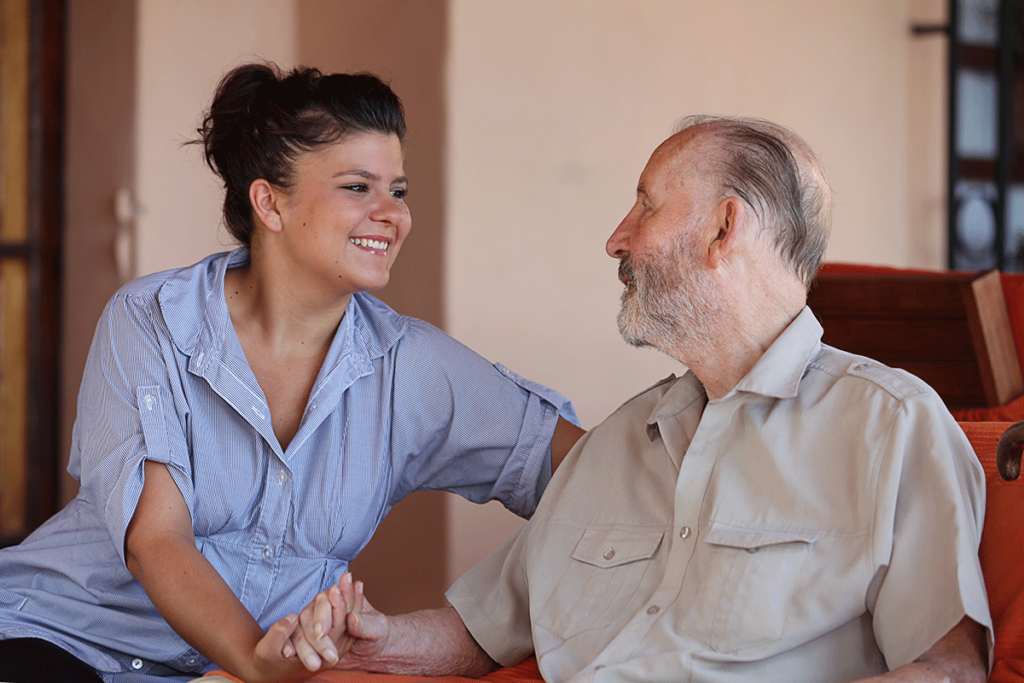Today, many seniors are proactively moving to senior living communities to enjoy their many benefits. For others who choose to age in place in their family homes, there may come a time when assisted living services become a necessity.
Senior assisted living is an excellent option for older adults who don’t require 24/7 care but can benefit from skilled support with the various tasks of daily living. Still, the assisted living transition can upset seniors and their families.
At Buckner Villas, we understand the emotions and challenges surrounding a move to senior assisted living and offer expert guidance and support to ease the transition. Call 512.580.9882 to speak with an intake specialist and learn more about our programs, including assisted living.
What to Know About Moving into Assisted Living
For many seniors and their families, the first question about assisted living is how to know if or when the time is right. The answer is that there is no specific timeframe because the aging process is different for everyone.
However, some general signs can signal that moving into assisted living is warranted, such as:
- Declining physical health that impacts the ability to manage activities of daily living (ADLs), including bathing, dressing, toileting, and eating
- Memory issues that affect the ability to safely manage everyday life independently
- Safety concerns, including forgetting to turn off appliances or frequent accidents and falls
- Struggling to manage medications
- Nutritional issues, such as weight loss or struggling with meal preparation
- Declining mobility, including getting in and out of bed or chairs
- Decreased ability to keep up with household chores and home maintenance
- Wandering or getting lost
- Frequent hospitalizations
- Noticeable decline in emotional well-being, including anxiety or depression
Often, seniors rely heavily on family members to assist with personal care, transportation, household upkeep, and more, which can lead to caregiver burnout. Additionally, seniors may resist assistance from family members or home healthcare aides. Both circumstances are further signs of the need to move into assisted living.
4 Benefits of Transitioning to Assisted Living
Moving into assisted living comes with numerous benefits aimed at enhancing the quality of life for seniors. Among these advantages are:
1. Enhanced Safety and Security
Assisted living facilities are designed with the safety of seniors in mind. Features such as emergency call systems in each residence, secure entrances, and staff available 24/7 help ensure that residents are safe at all times.
2. Personalized Care Plans
Residents receive care tailored to their individual needs. This includes assistance with daily living activities, medication management, and health care services, ensuring that each person’s specific health and wellness requirements are met.
3. Housekeeping and Maintenance Services
Freed from the burdens of home maintenance, cleaning, and laundry, residents can focus on enjoying life and engaging in activities they love, without the stress of household chores.
4. Peace of Mind for Families
Knowing that their loved one is in a safe, supportive environment provides immense peace of mind to families. They can rest assured that professional assistance is available whenever it’s needed, allowing for a balance between independence for the senior and support when necessary.
Tips for Easing the Assisted Living Transition
One of the best tips for easing the transition while moving into assisted living is opening the conversation and researching assisted living facilities as early as possible. The value of not waiting until a crisis occurs and having a plan in place is immeasurable.
Other ways of easing the transition to assisted living include:
- Ensuring that the senior is involved in the decision-making process as much as possible
- Visiting multiple facilities to find the one best suited to the individual’s and family’s needs
- Consulting with healthcare professionals and social workers who can help navigate the process
- Addressing legal and financial matters
- Downsizing and decluttering with input from the senior about what to keep, sell, or donate
- Decorating and personalizing the new living space with familiar and beloved possessions
- Encouraging engagement in assisted living activities
- Providing emotional support
- Staying involved through consistent visits and phone calls
- Keeping up to date with the care and services provided and communicating with staff
Each senior’s transition to assisted living is unique; what is best will vary between individuals. Providing emotional support for your loved one and taking care of your needs is essential. Further, the more involved a senior can be in the process, the easier the transition will be.
Learn More About Assisted Living Services by Calling Buckner Villas
Most people find change difficult, and transitioning to senior assisted living is a significant life change. The compassionate, highly skilled staff at Buckner Villas is committed to making each resident feel welcomed and at home. We invite friends and family to participate in the lives of their loved ones actively and support them to ease the transition as well.
Call us today at 512.580.9882 or use our online contact form to schedule a tour and learn more about senior assisted living in Austin, TX.

